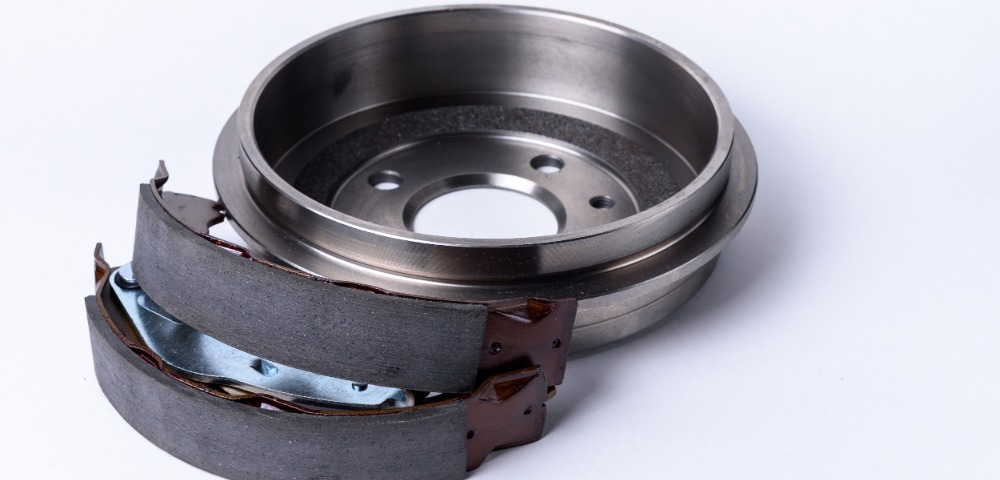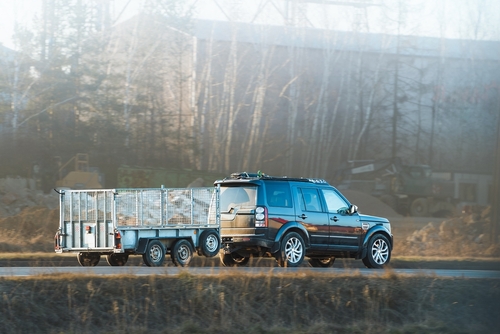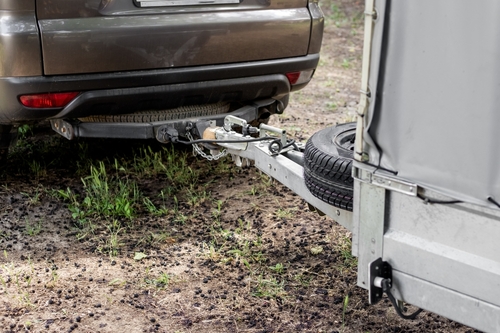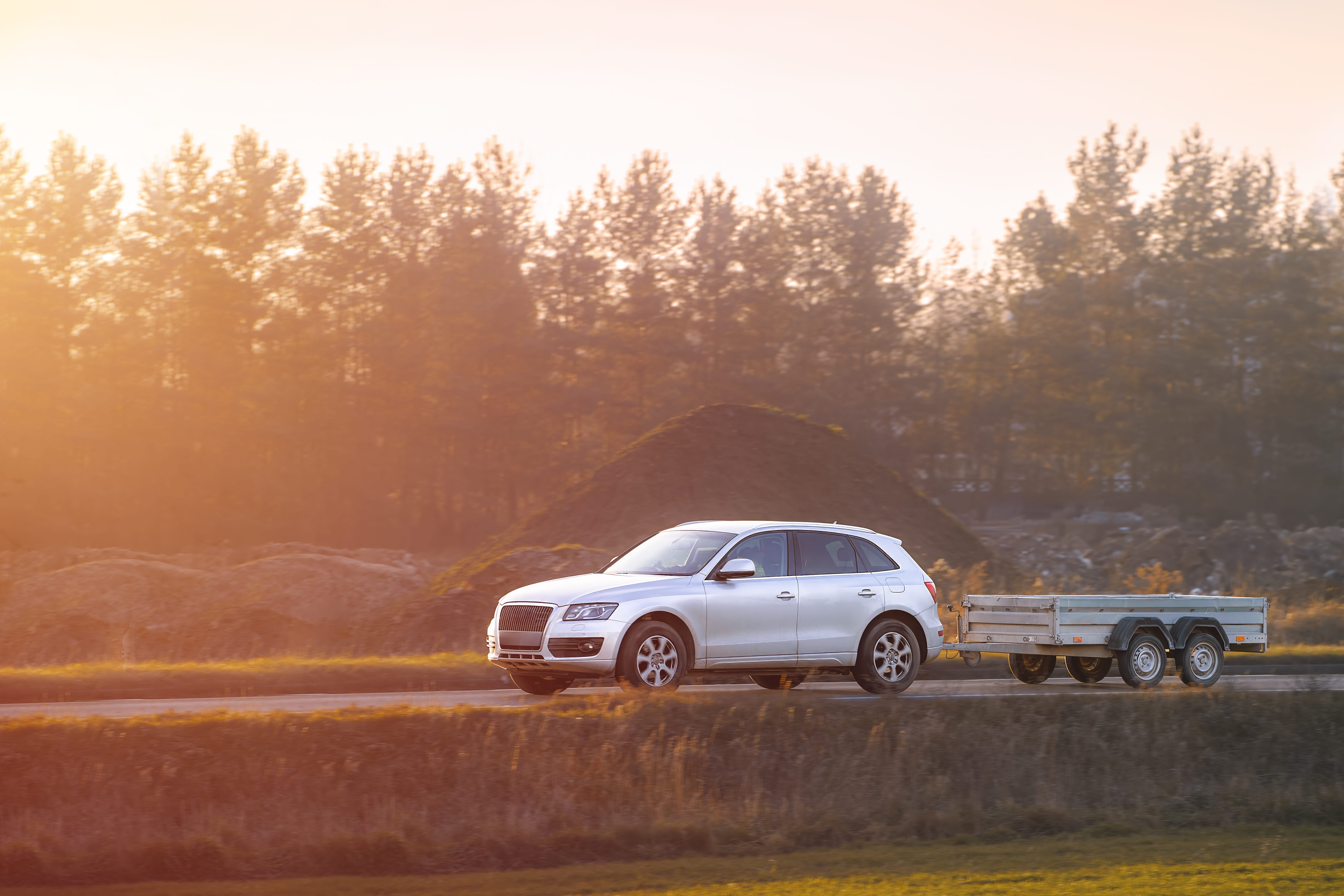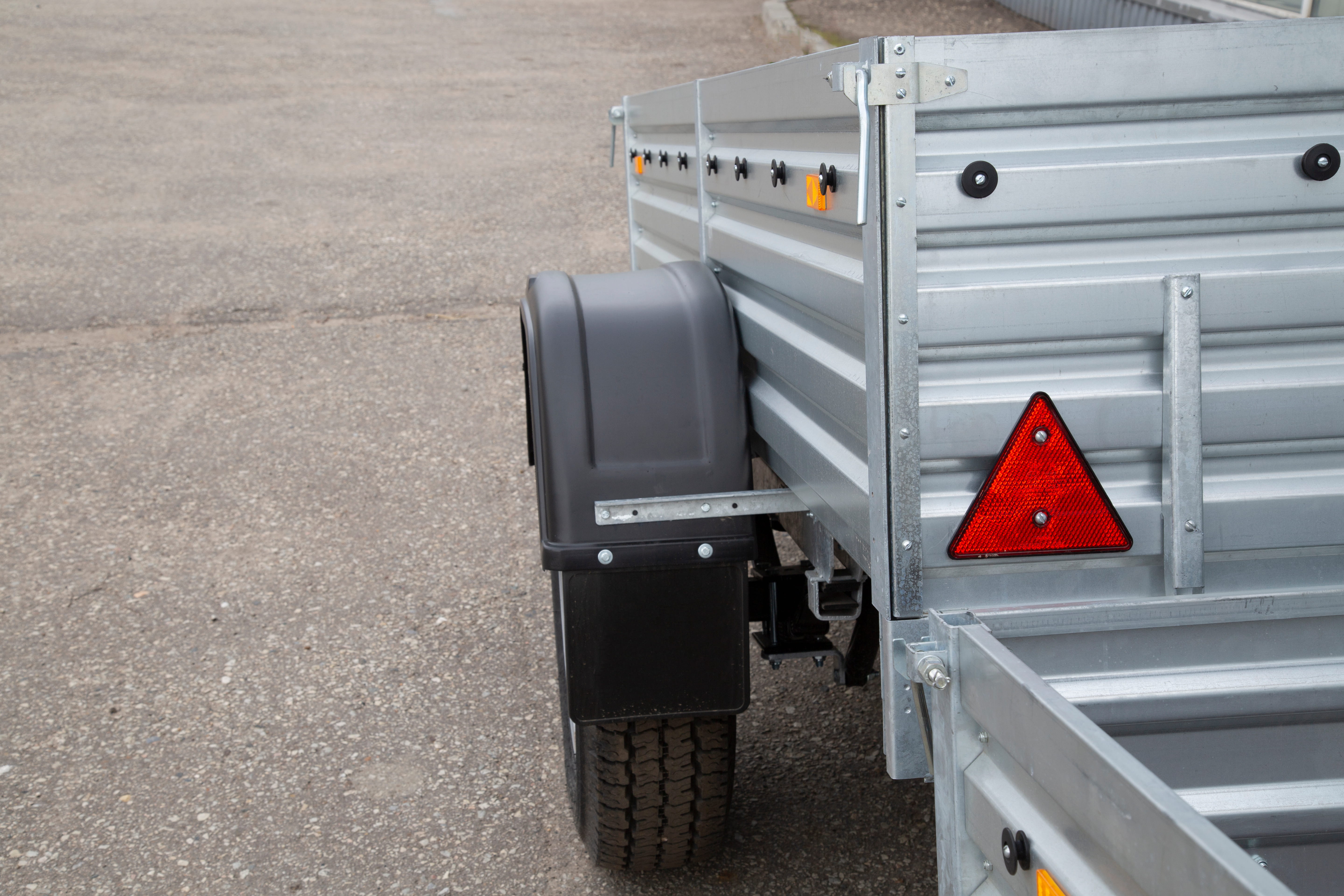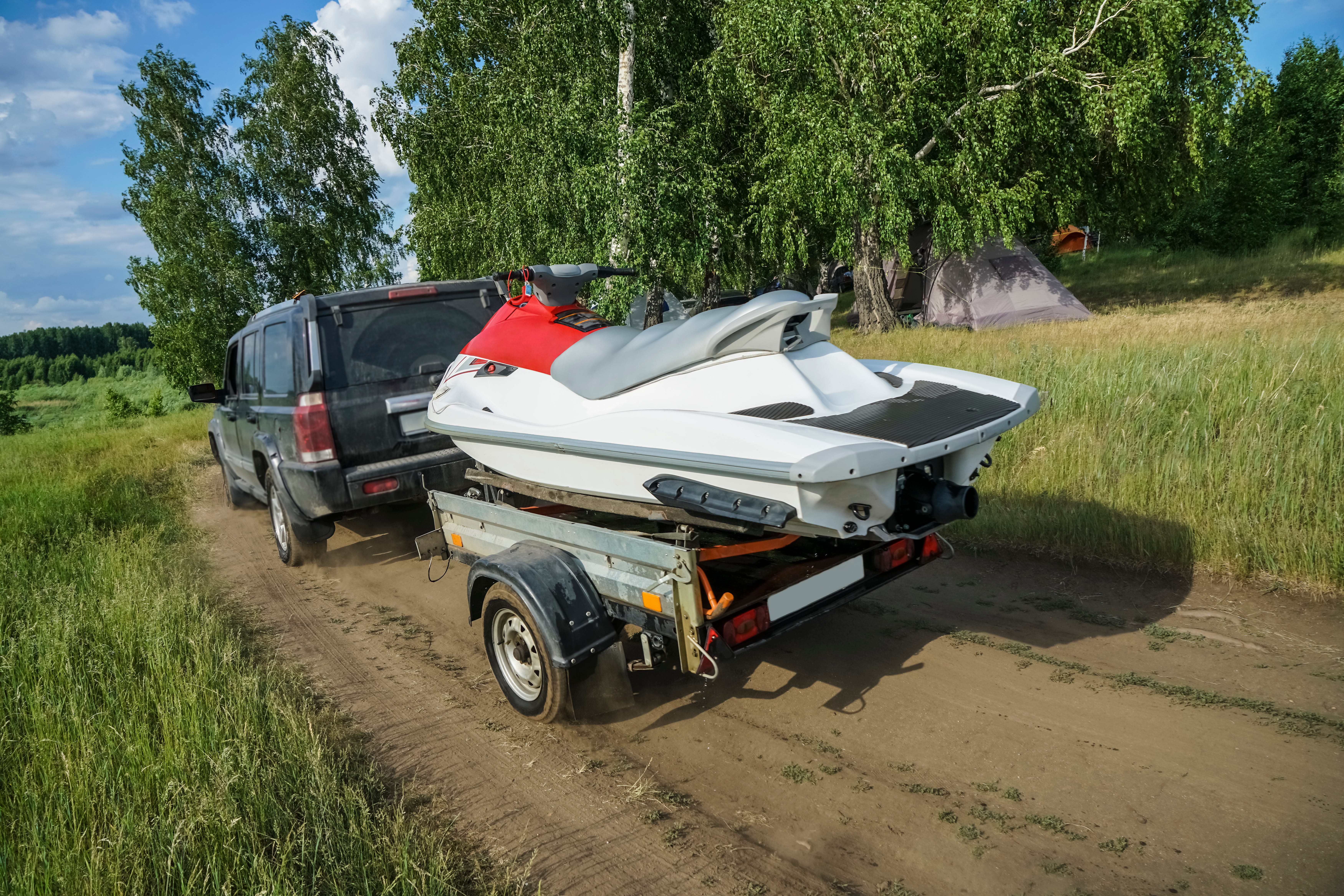Depending on the size and weight of the trailer you are towing, it might need to have brakes fitted to it. Usually trailers that do need brakes will have them fitted before they leave the factory, to meet safety criteria. If you do have a trailer that does have brakes, it is important that they are fitted and maintained properly so they are there when you need them. Regulations state that by law, a trailer that is over a gross trailer mass of 750kg or is dual axle is required to have its own braking system.
Types of Trailer Braking Systems
There are various types of trailer braking systems that your trailer may have. This too is dependant on the gross trailer mass, the most common types of trailer braking is electronic braking and override braking, however you can also find breakaway systems on larger trailers.
Electronic braking is a system which is controlled by the towing vehicle to apply brakes to the trailer in a similar way to your vehicle. Brakes are applied at the same time you press the brake pedal of the towing vehicle, and at the same pressure as the towing vehicle. The purpose of this is to dissipate the momentum of the trailer without transferring all the energy to the towing vehicle. Electronic braking is seen in trailers and caravans over 750kg; however this type of braking system becomes mandatory when the gross trailer mass exceeds 2000kg.
To operate an electronic braking system on your trailer, you will first need to fit an electronic control unit to your towing vehicle. Electric braking systems are usually not seen on boat trailers due to the risk of water causing them to malfunction. So are usually reserved purely for utility trailer use.
Override brakes are another common braking system found on trailers. Usually override braking systems are reserved for smaller, lighter trailers, and not used when the gross trailer weight exceeds 2000kg. Override brakes are used to manually apply brakes on the trailer through force applied to the trailer coupling. As the towing vehicle slows down through braking, the trailer coupling will experience a pressure due to the transfer of momentum from the trailer. This pressure is then used to manually apply the trailer brakes, the higher the pressure/deceleration, the more braking effort there is applied. This type of braking is very simple and requires no additional systems to be in place. However due to the indirect application of braking in this type of system, it can only be used for trailers with a low gross weight.
Override brakes are sometimes referred to as hydraulic surge brakes, as it is usually a hydraulic action which applies the brakes to the trailer. The main downside to this type of braking is the split-second delay between the application of brakes on the towing vehicle, and the trailer, this therefore increases the braking distance required to stop both vehicle and trailer.
Breakaway systems are the third type of brake found on a trailer and caravan. These are not as commonly seen as they are only legally required in trailers or caravans that exceed 2000kg. This type of system is used as a failsafe. If a trailer or caravan were to become uncoupled during tow, a breakaway system will automatically apply the brakes on whatever is being towed and therefore bring it to a controlled stop. This is a legal requirement on heavier trailers and caravans as they have a larger potential to cause damage if a situation like this were to occur.

Trailer Brake Types
By far, the most common type of physical brake seen on a trailer is a drum brake. This type of braking uses a brake shoe or a brake pad to press against a rotating cylinder within the brake. The friction generated by the shoe causes the rotation to slow, and therefor generating a braking effect. Drum brakes are one of the cheapest braking options you can find for a trailer while still providing plenty of braking action. The braking effect is applied in a smooth and progressive way when using drum brakes making it ideal for trailer usage. To maintain peak braking performance in drum brakes, the brakes should be serviced and adjusted accordingly roughly every 30,000km.
Due to a low amount of air getting to a drum brake, it is easy for them to overheat during prolonged use. This is usually not an issue on trailer brakes, however, should you find yourself towing down steep or winding roads it is something to bear in mind. The effects of brakes overheating can cause a reduction in braking effect and therefore lead to an increased stopping distance. Brake drums are excellent in trailers and caravans of most sizes, however more modern, heavier trailers may see the use of disc brakes.
Disc brakes are found on most modern cars as they provide an excellent braking force. A disc brake consists of a disc/rotor, a brake calliper and brake pads. They are usually operated using hydraulics, which force the pads against the disc, causing rotation to slow due to friction. They are the preferred option when it comes to boat trailers as water cannot get trapped inside the system. They are also more widely seen on large trailers and caravans as they generally provide a greater braking force when compared to drum brakes.
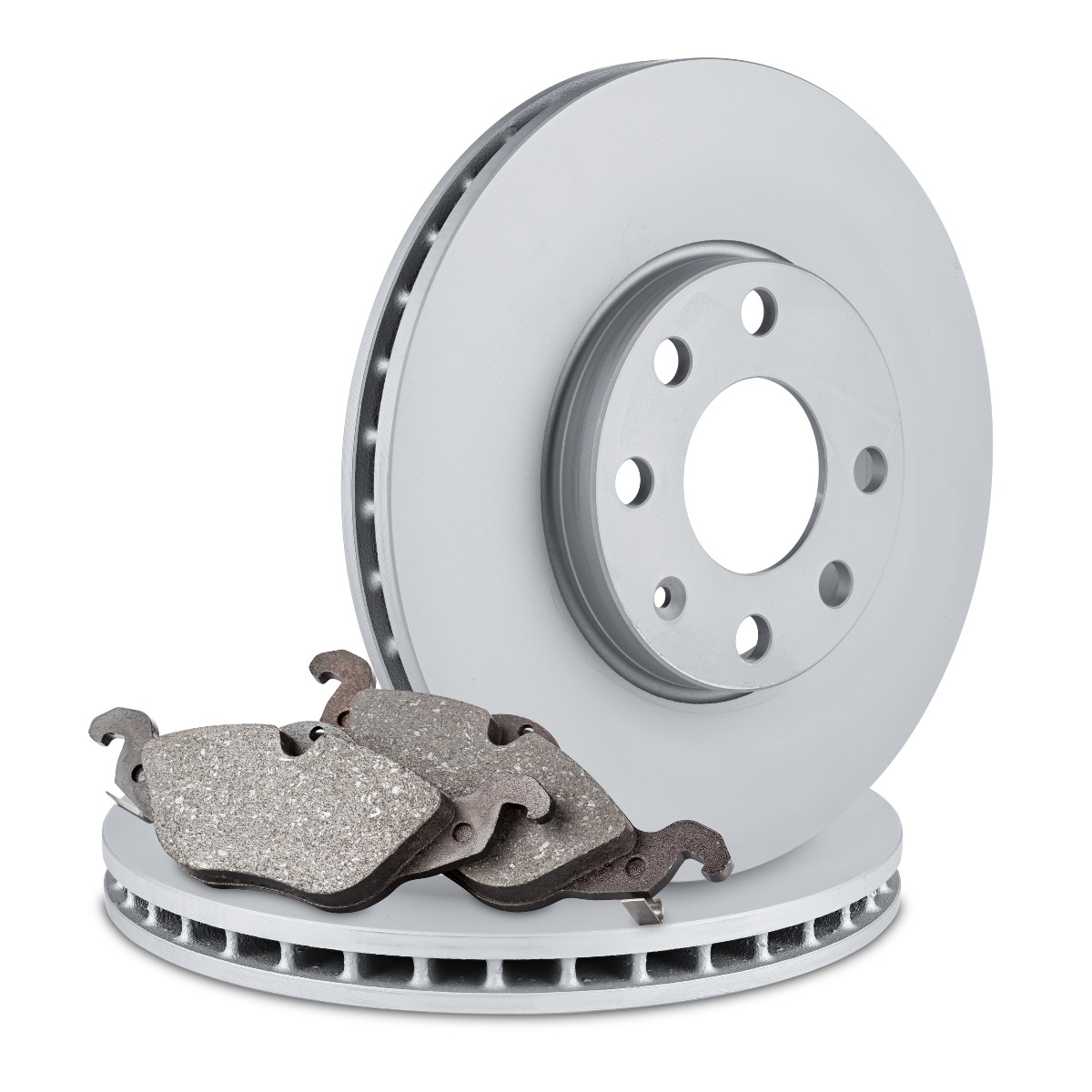
With plenty of air cooling, disc brakes usually experience no/very little reduction in braking force when used extensively. Disc brakes are easy to maintain and have less moving parts than drum brakes, making them perfect for trailers and caravans. A disadvantage to disc brakes is they can become expensive due to the cost of electric actuators for the hydraulics required to make them function. Other than this they are similar in running costs to drum brakes.
It is always a good idea to check your brakes over and make sure they are functioning correctly with plenty of wear left on them. This goes for both the towing vehicle, and the trailer/caravan you are towing. If you require assistance on changing your trailer braking system, your trailer brake pads, or anything else trailer related, contact us at TrailerTek on 01962 77 49 88.


